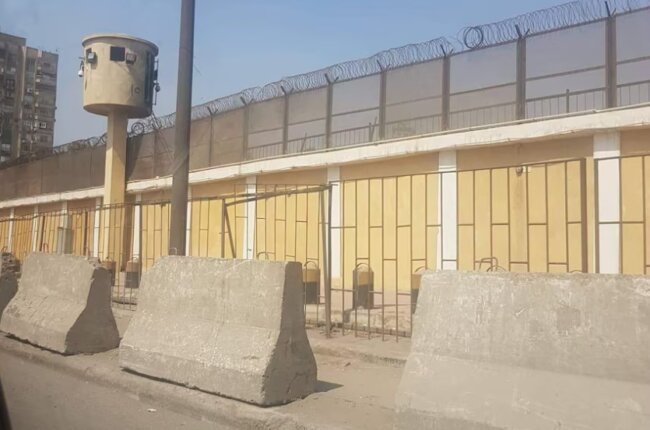The death of three detainees in separate Egyptian jails within a single week has once again thrown a harsh spotlight on Egypt’s notorious detention system, sparking hunger strikes among prisoners and drawing renewed condemnation from international human rights groups. The Egyptian Network for Human Rights (ENHR) has called for an immediate and independent international investigation into allegations of torture, medical neglect, and other abuses that are increasingly defining life inside Egypt’s prisons.
The group’s appeal came on August 4, days after the confirmed deaths of Farid Shalaby, Ayman Sabry, and Karim Mohamed Abdo Badr-three young men who, according to ENHR, died as a direct result of torture and systemic mistreatment in detention. The Egyptian government, particularly the Ministry of Interior, has either remained silent or offered alternative explanations that families and rights groups strongly contest.
According to ENHR, political prisoners in Abu Zaebel 2 Prison have launched an open-ended hunger strike to protest what they describe as “systematic punitive policies” inside Egypt’s detention system. These include torture, solitary confinement, denial of medical treatment, and collective punishment. The hunger strikes are being seen as part of a broader wave of resistance by detainees who have long endured state violence behind closed doors.
ENHR has framed the action as a symbolic “breaking of the fear barrier,” underscoring the desperation and courage it takes for detainees-many of whom are held without trial-to risk further punishment in pursuit of dignity and justice.
“Prisoners are being subjected to unimaginable conditions,” the group said in its statement. “The hunger strikes are not just about food-they are about basic human rights, about refusing to be silent in the face of state-sanctioned brutality.”
The string of recent deaths began with 21-year-old university student Ayman Sabry. According to ENHR, Sabry was arrested on July 19 in Dakahlia Governorate and died six days later after a week of torture at Belqas Police Station. The Ministry of Interior later claimed that Sabry had been arrested for drug possession and died from cardiac arrest-a claim strongly disputed by his family. They say his body bore clear signs of beatings and electric shocks.
Sabry’s death triggered small-scale protests in front of the local court. Videos circulated on social media show citizens clashing with police forces-a rare display of public defiance in a country where protests are often quickly suppressed.
Barely a day later, ENHR reported the death of 25-year-old Karim Mohamed Abdo Badr in Giza Governorate. He and his brother had allegedly been detained over suspicions of attempting to steal an auto rickshaw. Authorities have yet to comment on Badr’s death, which ENHR says is also linked to torture and abuse.
The third case is perhaps the most chilling. Farid Shalaby reportedly died inside a Central Security Forces headquarters operated by the National Security Agency in Kafr El-Sheikh Governorate. ENHR says Shalaby had been forcibly disappeared weeks earlier and subjected to severe torture before dying in custody. He had reportedly been on the run for several years, but the circumstances of his capture and subsequent death remain murky.
The Geneva-based Committee for Justice (CFJ) reports that these deaths are not isolated incidents but part of a broader and ongoing pattern of abuse in Egypt’s carceral system. As of August 2025, the organization has documented at least 15 detainee deaths this year alone. In 2024, the number reached 50.
Many of these deaths, according to CFJ and ENHR, stem from untreated medical conditions exacerbated by poor prison conditions, or from direct acts of violence by police or security agents. The groups also point to the extensive use of enforced disappearances and secret detention sites, particularly under the authority of the National Security Agency.
“These are not rogue incidents,” said a CFJ spokesperson. “We are witnessing a systemic policy of repression that has been normalized within Egypt’s law enforcement and penal institutions. The victims are not just criminals-they include students, activists, and citizens caught up in the regime’s widening dragnet against dissent.”
ENHR describes the violations as being in “flagrant violation of the Egyptian Constitution and domestic laws, as well as international agreements ratified by Egypt.” Yet despite growing international pressure and a mountain of evidence, accountability remains virtually non-existent.
Despite the gravity of these reports, Egypt has so far faced little meaningful pressure from major international actors. As a key partner in regional counterterrorism operations and an importer of Western arms and surveillance technology, Egypt has managed to shield itself from serious consequences over its human rights record.
The United States and European Union, for instance, have continued to provide military aid and sell security equipment to Egypt, even as watchdogs report its use in human rights violations. Critics argue that this tacit approval has emboldened the Egyptian regime to act with impunity.
“Western powers need to stop pretending that they can continue business as usual with a regime that tortures its own people,” said a regional analyst at Human Rights Watch. “The price of silence is paid in human lives.”
ENHR’s renewed demand for an international investigation carries a sense of urgency that reflects the deteriorating conditions inside Egypt’s jails. The group is urging the United Nations, the African Commission on Human and Peoples’ Rights, and other global bodies to step in and launch an impartial inquiry into the deaths, the use of torture, and other violations.
Activists stress that such action is necessary not just for justice in the specific cases of Shalaby, Sabry, and Badr, but for all detainees who remain at risk. Many of them are being held without charge or trial, often for political reasons, in conditions that amount to cruel and inhuman treatment.
As the hunger strikes continue and the list of dead grows longer, Egypt’s prison system is once again being exposed for what critics say it has become: a shadow state within the state, where laws do not apply and suffering goes unacknowledged. Whether the international community will finally act-or continue to look the other way-remains to be seen.



